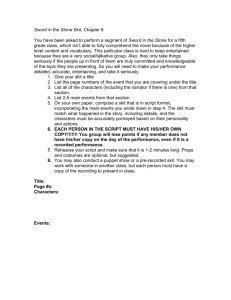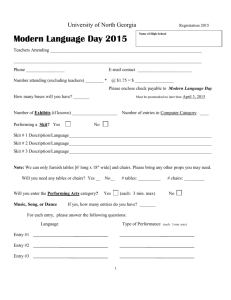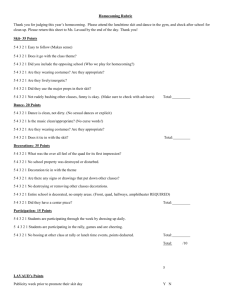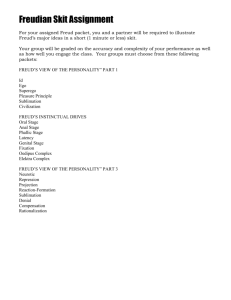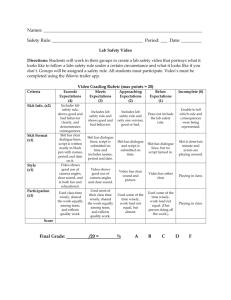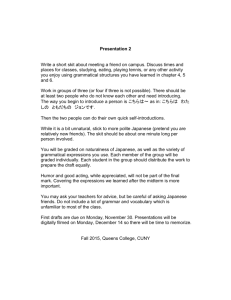Antigone Skit
advertisement
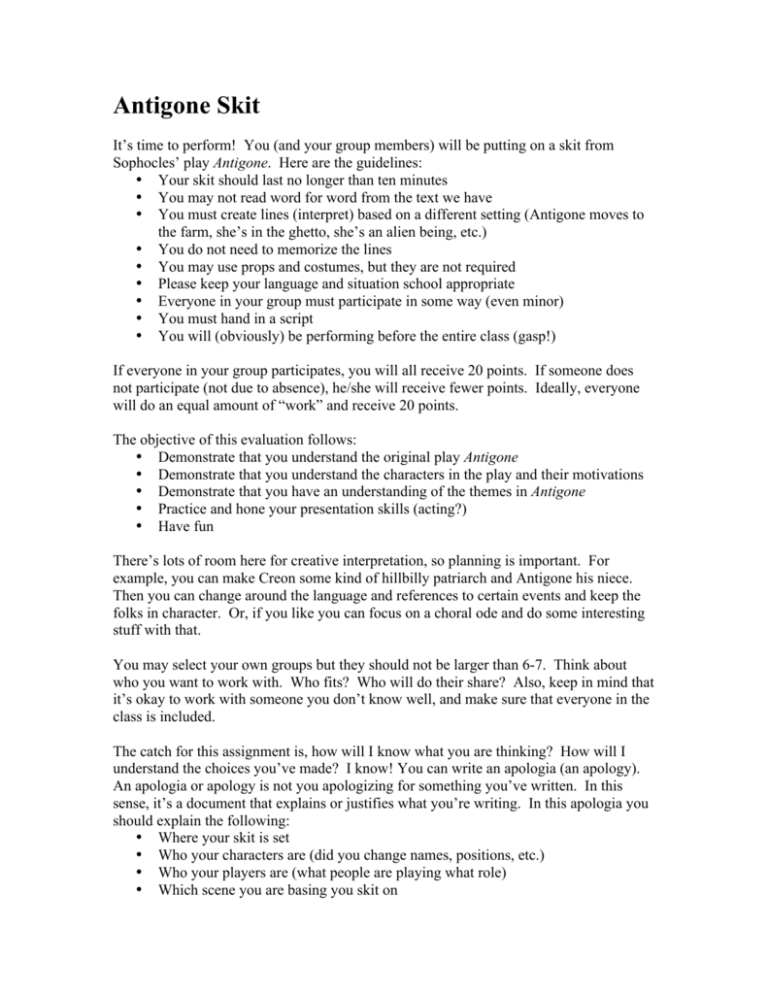
Antigone Skit It’s time to perform! You (and your group members) will be putting on a skit from Sophocles’ play Antigone. Here are the guidelines: • Your skit should last no longer than ten minutes • You may not read word for word from the text we have • You must create lines (interpret) based on a different setting (Antigone moves to the farm, she’s in the ghetto, she’s an alien being, etc.) • You do not need to memorize the lines • You may use props and costumes, but they are not required • Please keep your language and situation school appropriate • Everyone in your group must participate in some way (even minor) • You must hand in a script • You will (obviously) be performing before the entire class (gasp!) If everyone in your group participates, you will all receive 20 points. If someone does not participate (not due to absence), he/she will receive fewer points. Ideally, everyone will do an equal amount of “work” and receive 20 points. The objective of this evaluation follows: • Demonstrate that you understand the original play Antigone • Demonstrate that you understand the characters in the play and their motivations • Demonstrate that you have an understanding of the themes in Antigone • Practice and hone your presentation skills (acting?) • Have fun There’s lots of room here for creative interpretation, so planning is important. For example, you can make Creon some kind of hillbilly patriarch and Antigone his niece. Then you can change around the language and references to certain events and keep the folks in character. Or, if you like you can focus on a choral ode and do some interesting stuff with that. You may select your own groups but they should not be larger than 6-7. Think about who you want to work with. Who fits? Who will do their share? Also, keep in mind that it’s okay to work with someone you don’t know well, and make sure that everyone in the class is included. The catch for this assignment is, how will I know what you are thinking? How will I understand the choices you’ve made? I know! You can write an apologia (an apology). An apologia or apology is not you apologizing for something you’ve written. In this sense, it’s a document that explains or justifies what you’re writing. In this apologia you should explain the following: • Where your skit is set • Who your characters are (did you change names, positions, etc.) • Who your players are (what people are playing what role) • Which scene you are basing you skit on • • • Which themes or issues you are addressing in your skit What tragic flaw (if any) and what tragic character you’re presenting Any information you placed in the skit to both demonstrate your understanding of the entire Greek unit and to augment the performance Any other information that will help me understand what we’re watching The skit should be fun, but the apologia is what I consider to be the meat of the assignment in that it presents your choices, your logic, and your writing. All members of the skit will work together to receive a grade, but everyone must do a separate apologia. It will be worth 20 points, typed, double-spaced, 12 points, one page, grammatically clean. Here’s a TENTATIVE schedule: Monday, 11/2: Review for test Tuesday: Work on skit day Wednesday: Review for test Thursday: Work on skit Friday: Test Monday 11/9: In service Tuesday: Skit performance day Wednesday: Final skits and go over test Wednesday: Fun with semicolons!!
